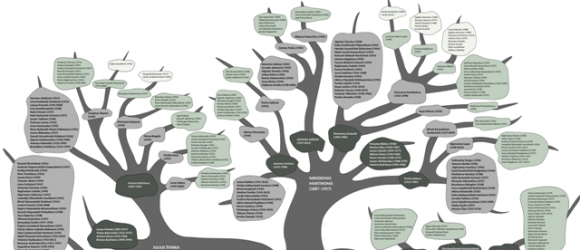Artistic research project “Lithuanian Schools of Choral Conducting: Identifications, Interactions and Modernisation” defended
- 2016-07-15
- | News

On June 14–15, 2016, the defense of Egidijus Kaveckas’ artistic doctorate project “Lithuanian Schools of Choral Conducting: Identifications, Interactions and Modernisation” will take place at…. and the Lithuanian Academy of Music and Theatre. Artistic supervisor of the project – Prof. Vytautas Miškinis, consultant – Prof. Gintaras Rinkevičius; research supervisor – Prof. Habil. Dr. Gražina Daunoravičienė, consultant – Prof. Povilas Gylys.
Defense of the creative part of the artistic doctorate project
June 14, 2016, 7 p.m.
VILNIUS ST. PHILIP AND ST. JACOB THE APOSTLES’ CHURCH (Vasario 16-osios str. 11, Vilnius)
CONCERT PROGRAM
Maurice Duruflé (1902–1986) – Requiem Op. 9
Performers: Milda Baronaitė (soprano), Sandra Lebrikaitė (mezzo-soprano), Vilnius Municipal Choir “Jauna muzika” (artistic leader – Vaclovas Augustinas), the choir of the State Song and Dance Ensemble “Lietuva” (leader – Algimantas Kriūnas), State Choir “Polifonija” (leader – Aurelija Čižauskaitė), St. Christopher Chamber Orchestra (artistic leader – Donatas Katkus), Lithuanian Armed Forces Orchestra (artistic leader – Egidijus Ališauskas).
Defense of the artistic research paper
June 15, 2016, 1 p.m.
LMTA JUOZAS KAROSAS HALL (Gedimino pr. 42, Vilnius)
CHAIR OF THE DEFENSE BOARD OF ARTISTIC RESEARCH PROJECT – Prof. Jurijus Kalcas (Lithuanian Academy of Music and Theatre, Music, Choral conducting);
BOARD MEMBERS: Prof. Toomas Kapten (Estonian Academy of Music and Theatre, Music, Conducting), Prof. Habil. Dr. Leonidas Melnikas (Lithuanian Academy of Music and Theatre, Humanities, Art Research, Musicology), Prof. Česlovas Radžiūnas (Lithuanian Academy of Music and Theatre, Music, Choral conducting), Prof. Dr. Audronė Žiūraitytė (Lithuanian Academy of Music and Theatre, Humanities, Art Research, Musicology);
REVIEWERS: Assoc. Prof. Gintautas Venislovas (Lithuanian Academy of Music and Theatre, Music, Choral conducting), Assoc. Prof. Dr. Judita Žukienė (Lithuanian Academy of Music and Theatre, Humanities, Art Research, Musicology).
Summary
The conductor’s professionalism, creative touch, aspirations, repertoire strategy and other elements of creative work rely quite heavily on the school of teaching. The Lithuanian choir culture is intertwined with the so-called pedagogical school of choral conducting where the teacher transfers knowledge to the student. These links consolidate the models and aspects of creative orientations, technological attitudes, skills of the trade and often sources of the creative position. In this research project, the definition of the pedagogical school of composers formulated in the works of Algirdas Jonas Ambrazas (1969, 1991) adapted to the school of choir conductors is based on the general school components (programme, teacher, students) recording the specific place, time and tradition.
A structural component model is created representing choral conducting pedagogical school; it helps to refine the Lithuanian choral conducting pedagogical schools’ contours. In order to reach the necessary methodological sustainability and a richer, more specific installation of definitions system, an attempt was made to synthesize conducting and choreography arts. For this purpose, the Movement Analysis theory, an adapted version for conducting by Hungarian choreographer Rudolf J. Laban , was invoked and it was first published in his Kinetographie (1928).
The historiographical, comparative, structural-systemic, descriptive-analytical and other research methods are used to reveal the way in which national or individual pedagogical schools of choral conducting emerge; the principles of their functioning and interaction; how the teaching choirmaster, his creative work, specific manual techniques, interpretational attitudes or ideals continue to contribute to the further development of choir art through their students; modernisation of the Lithuanian school of choral conducting, etc. The conceptual framework of the research topic covers not only the problems of schools of choral conducting and Lithuanian choir music art but also a systematic study of the Lithuanian cultural progress.

